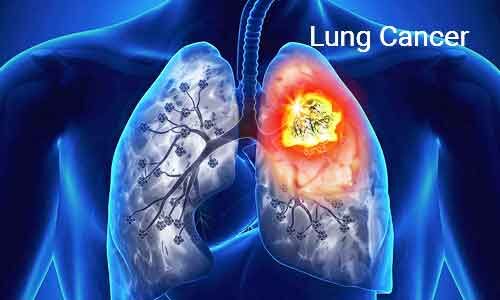- Home
- Medical news & Guidelines
- Anesthesiology
- Cardiology and CTVS
- Critical Care
- Dentistry
- Dermatology
- Diabetes and Endocrinology
- ENT
- Gastroenterology
- Medicine
- Nephrology
- Neurology
- Obstretics-Gynaecology
- Oncology
- Ophthalmology
- Orthopaedics
- Pediatrics-Neonatology
- Psychiatry
- Pulmonology
- Radiology
- Surgery
- Urology
- Laboratory Medicine
- Diet
- Nursing
- Paramedical
- Physiotherapy
- Health news
- Fact Check
- Bone Health Fact Check
- Brain Health Fact Check
- Cancer Related Fact Check
- Child Care Fact Check
- Dental and oral health fact check
- Diabetes and metabolic health fact check
- Diet and Nutrition Fact Check
- Eye and ENT Care Fact Check
- Fitness fact check
- Gut health fact check
- Heart health fact check
- Kidney health fact check
- Medical education fact check
- Men's health fact check
- Respiratory fact check
- Skin and hair care fact check
- Vaccine and Immunization fact check
- Women's health fact check
- AYUSH
- State News
- Andaman and Nicobar Islands
- Andhra Pradesh
- Arunachal Pradesh
- Assam
- Bihar
- Chandigarh
- Chattisgarh
- Dadra and Nagar Haveli
- Daman and Diu
- Delhi
- Goa
- Gujarat
- Haryana
- Himachal Pradesh
- Jammu & Kashmir
- Jharkhand
- Karnataka
- Kerala
- Ladakh
- Lakshadweep
- Madhya Pradesh
- Maharashtra
- Manipur
- Meghalaya
- Mizoram
- Nagaland
- Odisha
- Puducherry
- Punjab
- Rajasthan
- Sikkim
- Tamil Nadu
- Telangana
- Tripura
- Uttar Pradesh
- Uttrakhand
- West Bengal
- Medical Education
- Industry
Early treatment with lorlatinib improves survival in some lung cancer patients

BOSTON - Lung cancer patients with a specific genetic alteration lived longer and were protected against metastasis to the brain when treated early with the drug lorlatinib (Lorbrena), according to a study led by researchers at Massachusetts General Hospital (MGH), published in the New England Journal of Medicine (NEJM).
Lorlatinib (Pfizer) is a novel third-generation ALK inhibitor that is more potent than second-generation inhibitors in biochemical and cellular assays and has the broadest coverage of ALK resistance mutations that have been identified.
Non-small-cell lung cancer (NSCLC) accounts for 87% of all cases of lung cancer. Some 5% of NSCLC cases are ALK-positive, which means they have a genetic abnormality in the anaplastic lymphoma kinase gene. ALK-positive NSCLC, which is not associated with smoking, is a particularly aggressive form of lung cancer.
"When ALK is turned on abnormally, it's like stepping on the gas pedal--it drives uncontrolled proliferation and survival of cancer cells," says investigator Alice Shaw, MD, PhD, who was formerly director of the Center for Thoracic Cancers at MGH and led the NEJM study. Notably, ALK-positive patients tend to be 10 to 15 years younger than other lung cancer patients. They are also at high risk for developing brain metastasis.
A new class of drugs that block ALK, known as ALK inhibitors, was discovered in 2008. "Turning off ALK with an ALK inhibitor is like putting on the brakes," agrees Justin Gainor, MD, of the Mass General Cancer Center, who worked with Shaw on the study. "It can lead to rapid killing of cancer cells and cause tumors to shrink dramatically." Both first and second generation ALK inhibitors have been developed, including crizotinib (Xalkori), alectinib (Alecensa), and brigatinib (Alunbrig), which can be very effective, but patients eventually relapse. What's more, patients treated with these drugs can still develop metastatic spread of cancer to the brain.
Lorlatinib belongs to a third-generation of this drug class and is even more effective at blocking ALK. It's currently approved by the Food and Drug Administration for treating ALK-positive patients whose cancer has progressed despite taking older-generation ALK inhibitors.
Shaw and her co-investigators wanted to know if lorlatinib improved the likelihood of long-term remission in ALK-positive patients when administered as first-line therapy. To find out, she and colleagues at 104 medical centers in 23 countries recruited 296 patients with advanced, previously untreated ALK-positive NSCLC. Half of the patients received lorlatinib, while the remainder were treated with crizotinib, which was the standard of care for these patients when the trial began.
The results were striking. Compared to patients who received crizotinib, those given lorlatinib had a 72% reduction in the risk of cancer progression or death. Importantly, lorlatinib also reduced the risk of new or recurrent brain metastases by 93%. Serious side effects were more common in the lorlatinib group, but more than half were increases in blood cholesterol and triglycerides, which were manageable with medication.
The investigators will continue to follow patients in this study to track their long-term outcomes, but "these results support lorlatinib as a potential first-line option for ALK-positive patients," says Shaw.
https://www.nejm.org/doi/10.1056/NEJMoa2027187
Hina Zahid Joined Medical Dialogue in 2017 with a passion to work as a Reporter. She coordinates with various national and international journals and association and covers all the stories related to Medical guidelines, Medical Journals, rare medical surgeries as well as all the updates in the medical field. Email: editorial@medicaldialogues.in. Contact no. 011-43720751
Dr Kamal Kant Kohli-MBBS, DTCD- a chest specialist with more than 30 years of practice and a flair for writing clinical articles, Dr Kamal Kant Kohli joined Medical Dialogues as a Chief Editor of Medical News. Besides writing articles, as an editor, he proofreads and verifies all the medical content published on Medical Dialogues including those coming from journals, studies,medical conferences,guidelines etc. Email: drkohli@medicaldialogues.in. Contact no. 011-43720751


